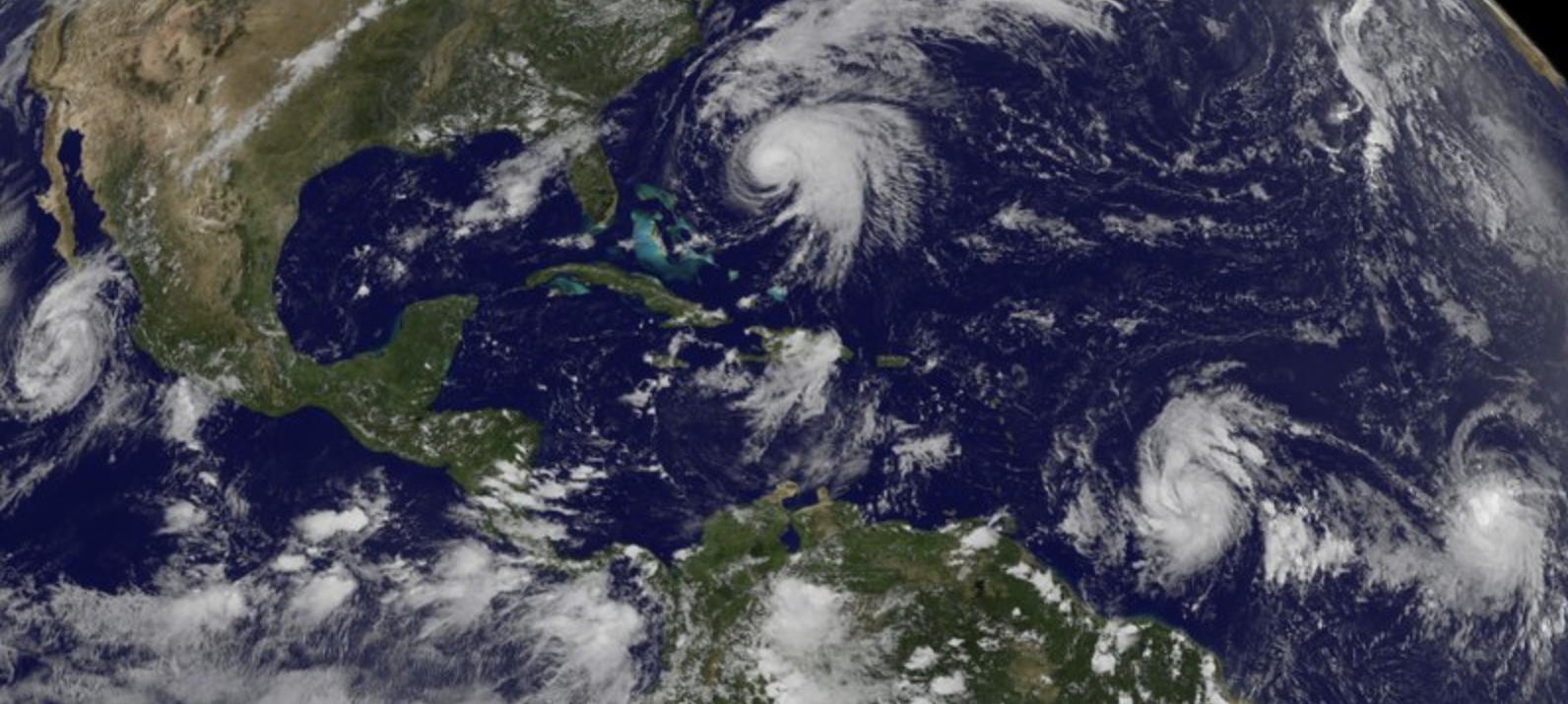4 Million Euro INTERREG Ready Together project to strengthen disaster management and response in the OECS
Article by Journalist Karel Clotaire reproduced under courtesy of France-Antilles Guadeloupe
"Ready together" against natural risks. The 4 million euro INTERREG Ready Together project was presented in Guadeloupe on June 12, 2019. The project is led by the Red Cross' Regional Response Platform for the Americas and the Caribbean (Pirac) and aims to strengthen disaster preparedness and to improve the assistance provided in the Eastern Caribbean in the event of natural disasters.
Ahead of the hurricane season, the Organisation of Eastern Caribbean States (OECS), the Regional Council of Guadeloupe, the International Federation of the Red Cross and Red Crescent, and the French Red Cross launched the regional cooperation project named INTERREG Ready Together. This project, which aims to strengthen natural disaster preparedness in the Eastern Caribbean, is structured around three major axes - with each axis divided into several actions.
"This project will benefit the OECS Member States. The first axis targets institutions through emergency assistance. The second axis includes small and medium sized enterprises and the third axis targets the population." Head of Pirac and coordinator of the INTERREG Ready Together project, Sendy Veera-Badren, said.
Construction of a Humanitatian Hub
The construction of a regional humanitarian warehouse with an inter-Caribbean scope, based in Guadeloupe, is among the components of the project. The warehouse will store basic necessities, emergency kits, etc., which will be deployed in disaster-affected territories. Head of Pirac Sendy Veer-Badren noted that, although the precise location had not yet been identified, its vocation will be to "better serve the Lesser Antilles."
A similar warehouse has already been built in the neigbhourhood of la Jambette, in Fort-de-France, Martinique. This warehouse will support the facility that will be constructed in Guadeloupe. Pirac did not wait for the launch of the INTERREG Ready Together project to preposition emergency stocks in the Eastern Caribbean, however, especially in Antigua and Barbuda, the Commonwealth of Dominica, Saint Lucia and Saint Vincent and the Grenadines.
The Red Cross has also launched another innovative action which targets entrepreneurs, namely the mobile application Atlas, Ready for Business. This free mobile application aims to provide assistance to entrepreneurs who are developing a disaster management plan.
Finally, the INTERREG Ready Together project also includes a training component.
"Staff of Pirac will join the Dominica Red Cross to work and identify local staff with relevant profiles to start a training programme tailored to facilitate fast mobilisation in the event of a natural disaster. Thus, local staff will collaborate amongst each other without the need to request assistance of other staff based in mainland France," Emergency Coordinator of Pirac, Emmanuel Pajot, explained.
The total cost of the INTERREG Ready Together project is estimated at € 4.9 million euros and is funded by the European funds, the French Development Agency and the Regional Council of Guadeloupe.
Interview with OECS Oceans Governance and Fisheries Program Coordinator, David Robin.
Why is the OECS interested in the INTERREG Ready Together project?
We are interested to see how we can increase our resilience based on what we experienced in 2017. We would also like to see how we can work better with French territories, institutions like CARICOM, the Regional Council of Guadeloupe and the financing institutions, etc. This project is also of interest to us as we can see how to improve supplies to the population of the OECS in the event of natural disasters. We have an OECS Pharmaceutical Procurement Service which runs bulk purchase of medicines to provide all OECS Member States with medicines at a lower price. This could be one of our contributions in this project.
How does the OECS work with governments to strenghten construction?
We have supported OECS Member States on this matter after the hurricanes of 2017 and we are still helping them to put in place and strengthen building codes, the regulatory framework and building construction standards in general. Many of them have already adopted the regulatory framework or have harmonised building standards, etc. Developments are still on going in this regard. As part of our intervention, for the implementation of building codes and resilience of buidlings, we took part in specific projects for which OECS Member States had an interest, to improve the monitoring of a number of buildings and important infrastructures. The third axis of the INTERREG Ready Together project is the human componant towards which a lot of work is being done. Some of my OECS colleagues are visiting multiple communities in the Member States, to raise awareness and show how to improve resilience through activities undertaken by the population itself. At the OECS, we realise that this project can be applied to all insular systems.
Guadeloupe and Martinique are Associate Members of the OECS. Will you rely on their expertise in construction standards?
At this stage, it would be useful to call upon and use the experience and expertise gained by Guadeloupe and Martinique as much as possible. It is important to understand that most of the OECS Member States do not even have the necessary regulatory framework. On the other hand, differences remain at multiple levels. At the legal level on the one hand. The French territories of the Caribbean operate under the civil law, whereas we operate on the common law. On the other hand, in terms of status, there are large variations from one country to another. There are independent territories, British overseas territories, French territories. You can see that the legal framework is completely heterogeneous, so we simply cannot apply, however we will strive to learn and use all your know-how as much as possible.
Today we are here in Guadeloupe and we are learning about the best ways to respond to natural disasters. Last month we were in Martinique and visited the volcano observatory. One way or another we are here to learn and really take advantage of everything you have to offer.

